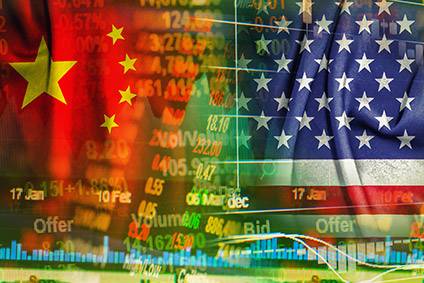
Today’s implementation by the US of new tariffs on a range of Chinese goods imported to the US has been followed by retaliatory tariffs on US goods imported to China – including cars.
US tariffs on some USD34bn of Chinese goods (widely ranging from soybeans and lobsters to cars) came into effect at effect at midnight Washington time and were immediately followed by reciprocal Chinese tariffs.

Discover B2B Marketing That Performs
Combine business intelligence and editorial excellence to reach engaged professionals across 36 leading media platforms.
Beijing accused Washington of starting the “largest trade war in economic history”.
China, which recently cut tariffs on all imported automobiles, has put an additional 25% levy on 545 American products, including cars.
Daimler has already said that its profits this year will be hit by additional tariffs on vehicles it ships from its US plant to China.
Ford has said that for now, it will not hike prices of imported Ford and Lincoln models in China, thus absorbing the additional cost on US-made vehicles.
Many automakers are said to be monitoring the situation closely before acting.
US President Donald Trump has initiated import tariffs to redress what he sees as unfair trade imbalances with other countries. He has also suggested that tariffs could be imposed on EU made cars shipped to the US.
See also: Car companies issue tariffs warnings
Merkel backs reduced EU tariffs to avert trade war






